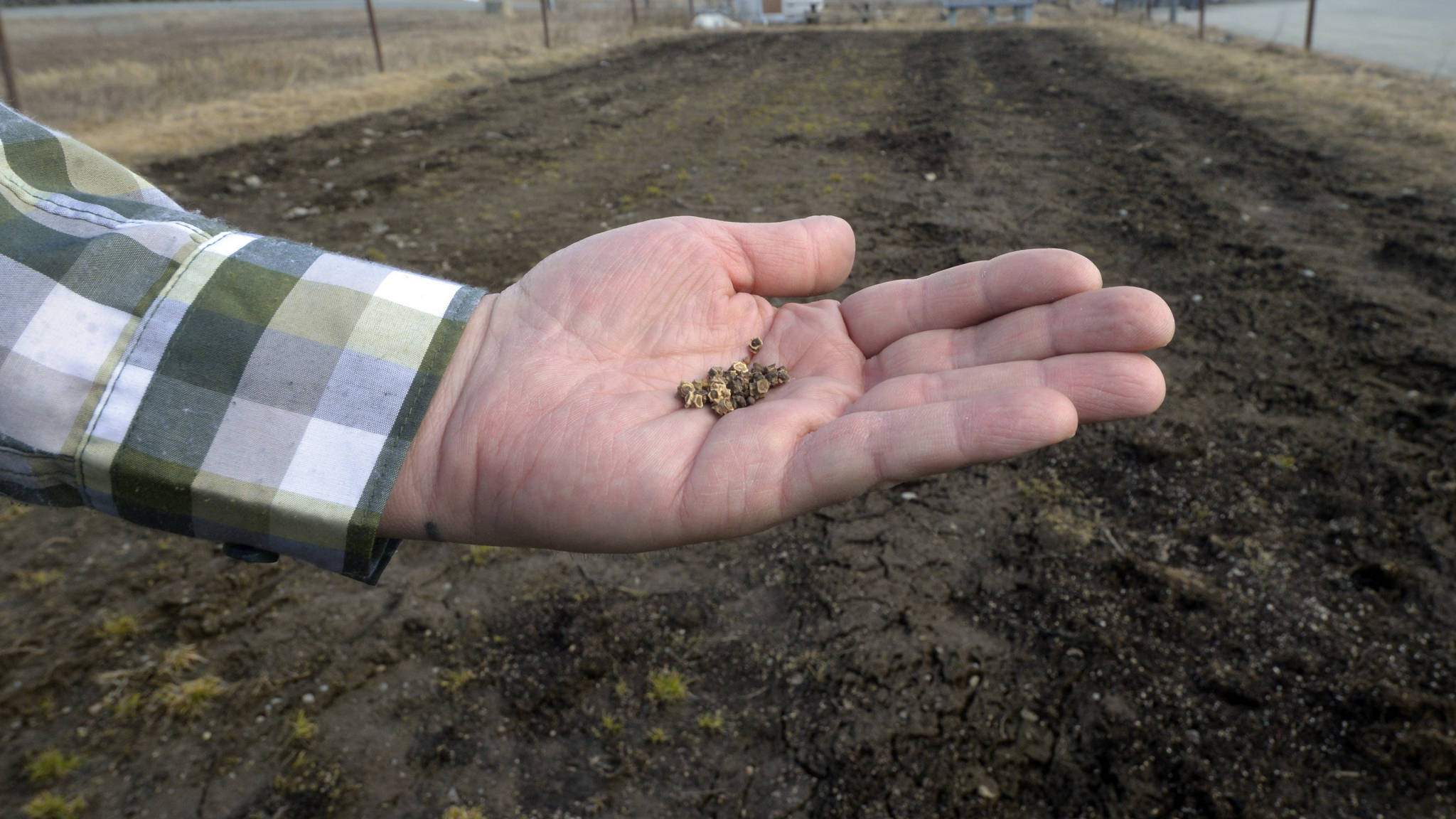A bill before the Alaska House of Representatives seeks to vindicate gardeners and farmers across the state by allowing local gardening communities to share seeds.
Currently, all seeds in Alaska fall under commercial regulations, including seeds traded among friends or saved from a past year’s harvest.
House Bill 197 would change this, allowing the Alaska gardening and farming community the opportunity to expand their seed horizons without breaking the law.
“Technically, seed libraries in the state of Alaska, any seed exchange in the state of Alaska, due to our current regulation, is against those regulations,” said Robert Carter of Alaska Plant Materials Center, during a House Resources Committee hearing Wednesday. “It is not in the best interest of … genetic diversity of plants or food security in our state or for our division to spend time and money to go out, and for lack of better terms, harass a bunch of community-oriented folks that are sharing seeds.”
The bill would allow for the Alaska Department of Natural Resources to set up and operate community seed libraries and exchanges.
“A community seed library is not defined in statute, so this bill carves out a space in the statute and says that, ‘Yes, seed libraries can exist and here are the guidelines,’” said Terranova Tasker, staff to HB 197 sponsor Rep. Jennifer Johnston, R-Anchorage, during Wednesday’s hearing.
The bill was introduced by Johnston and is co-sponsored by representatives DeLena Johnson, R-Palmer, Colleen Sullivan-Leonard, R-Wasilla, and Tammie Wilson, R-North Pole.
The bill specifies that seeds must be labeled with the seeds’ species and variety, seller’s name and address, the year the seed was packaged for sale, the weight of the packaged contents and the statement, “Not authorized for commercial use and not classified, graded, or inspected by the State of Alaska.”
While this may seem like overkill for a seed exchange at the local garden club meeting, Tasker said it leaves “some wiggle room.”
“Five requirements for labeling is a downgrade from the two pages of requirements we have now … In the scale of things, these requirements are pretty limited,” Tasker said. “Because of the way the statute is written, any seed that is used for any capacity in the state has to go through the commercial process of extensive testing, germinating percentages and labeling.”
Currently, the Department of Natural Resources is “not slapping fees” on seed libraries in existence, but the department “likes this regulation because it does give them the authority to help seed libraries … I think you’ll find this bill actually strengthens seed libraries and gives them greater access to doing what they do best,” Tasker said.
The Central Peninsula Garden Club on the Kenai Peninsula does not currently organize a seed library, but is exploring future opportunities to.
“I have had several requests from members, people asking about a seed exchange,” said Garden Club President Renae Wall. “What we do here is we swap seeds. When you order seeds, you get more than you can use, so it’s neat to split the costs or get more plants than what you paid for by swapping.”
Seed swapping can be less than formal.
“Around here, I know the only seeds I’ve ever gotten are some that people have brought to the garden club meeting and distributed them in the little, tiny ziplock bags, certain types of tomatoes and okra,” said Don Adams, a gardener on the Kenai Peninsula.
But these person-to-person swaps also violate state regulations.
“I think that’s silly,” said Paul Sutherland, who works in the Kenai Peninsula Food Bank’s garden. “I didn’t even know that was a thing. They should change it.”
If the bill becomes law, then community seed swapping and libraries would be within regulation as long as the seeds are labeled properly.
“Currently we don’t have the authority to spend any time or effort working with the non-commercial use of seed even though seed is very well up our ballgame,” Carter said. “I believe this legislation provides us that opportunity to, not regulate, but promote and identify non-commercial seed sharing around.”
The bill is being held for consideration and amendment, but members of the committee expressed interest in revisiting it. Johnston said she and her staff had some amendments to it and would be amendable to a committee substitute that incorporated those changes.
“It’s been revealed to me, and I’m shocked, that my dear departed granny was a hardened criminal,” said Rep. Justin Parish, D-Juneau. “She was really, really generous with the community in providing starts and seeds and I can’t help but want to vidicate her posthumously.”
Reach Kat Sorensen at kat.sorensen@peninsulaclarion.com.

